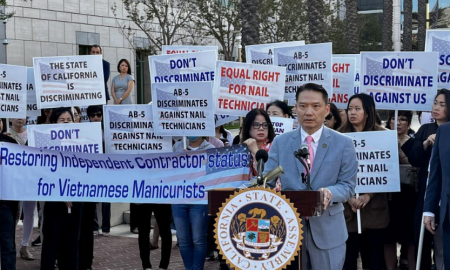
Beware! Family Law Now Allows Your Child to Leave You

Back in 1984, Irreconcilable Differences showcased a plot where a nine-year-old girl was able to sue her parents for divorce. Played by Drew Barrymore, this child made such an important decision based on the shallow relationship her parents had with each other. While in 1984, this movie was a pure case of fiction writing, you can say that sometimes fiction can turn into reality.
With evolving child custody law, there’s also a drastic changed noticed in the field of divorce Law. Parents are not the only ones who can divorce each other. In the United States of America, there’s a new addition to who can divorce whom. Have you ever heard of emancipation? If you have not, you’ll soon find out because Drew Barrymore (in the movie) is not the only child who can get her parents divorced now!
What Does Emancipation Mean?
Emancipation is a latest legal term for a law that allows a child to divorce his/her parents. Such can happen once the child reaches a specified legal age of majority. Emancipation of minor also means that the child can stop the parents from being legally responsible for them. While this varies from state to state, the most common age that allows a child to practice emancipation is sixteen to eighteen (when a child finishes high school).
However, there are a few cases where a child as young as 11 was able to file for emancipation. Then, if the child wishes to be free of both of his/her parents or one, the guardians can be taken to court for legal separation.
Since emancipation is new, it is not considered by most states of America, the law is growing on them with time. With this procedure, the child can also decide to sever all ties with his/her parents and become a ward of the state.
In most cases, the child’s parents are no longer obligated to make sure he/she is provided with basic necessities such as good, clothing, shelter, or child support. Technically, it also frees them from the responsibility for any wrong actions their biological child might commit. If the child is 18, they can take care of themselves on their own.
The Do’s And Don’ts Of Emancipation
Emancipation allows a child to enter a form of legally binding contract that represents how the child is no longer a responsibility of the parents. The child is also able to work and earn his/her own money. However, such should be done legally as defined by the child labor laws.
The child is also allowed to make medical decisions on their own. Then, to take care of shelter needs, the child can get an apartment under their name. If the child wishes to, they can also select the school they wish to go to, in case the state of the town is changed.
What the child cannot do includes driving unless they are of legal age. So in that case, public transportation is open for use. The child cannot vote or drink based on their legal age. With that, the child is not allowed to drop out of school in any case without showing that they have obtained their General Education Degree to court officials. Without parental consent, the child cannot marry. Unless they are of legal age based on the state they are in. Then, the parents cannot intervene.
It’s Not As Easy As Counting 1, 2, 3…
However, while emancipation has become common day by day, it’s not easy to find a successful case in court. There are various restrictions on the list that must be crossed before your case is even considered by lawyers. The court takes into account that the minor is able to function like an adult.
So, that means that the court looks for the maturity level of children. The court also looks for any sign of manipulation by the parents of the child. One important aspect that is checked by the court is the quality and quantity of parental support and supervision.
The court can appoint experts such as psychologists to send a detailed report on the child’s home conditions during the case. Since this measure is very drastic, it is equally hard for a court to actually rule in favor of the child. After all, a child will always be a minor in the eyes of the court.
More in Family law
-
`
90 Years Later, the NLRA Faces New Threats to Labor Rights
In July 1935, Congress passed a law that reshaped America’s labor system. The National Labor Relations Act (NLRA), also known as...
July 17, 2025 -
`
Why More Families Are Ditching the Courtroom in Divorce Cases
Breaking up may never be painless, but it’s becoming far less public, expensive, and combative—especially for separating couples in England and...
July 9, 2025 -
`
Meet the Creator Turning Celebrity Court Cases into Must-Watch TikToks
Melanie Goolsby never intended to become a voice for courtroom clarity. Yet, in just a few years, she’s emerged as a...
July 4, 2025 -
`
Flight Attendants Face New Sick Leave Rules After United’s Arbitration Win
United Airlines has secured a significant legal win, allowing it to enforce stricter sick leave rules for flight attendants on weekends....
June 25, 2025 -
`
Vietnamese Nail Salons Sue California Over Labor Code Changes
For decades, Vietnamese-owned nail salons have been central to California’s beauty industry, especially in areas like Orange County. But now, several...
June 18, 2025 -
`
New Colorado Guide Sheds Light on Child Custody and Abuse Allegations
When it comes to legal battles involving children, nothing raises the stakes like cases tied to domestic violence. In Colorado, family...
June 11, 2025 -
`
Kim Kardashian Isn’t Alone—The Wild History of Celebs Dressing for Court
Kim Kardashian’s recent courtroom appearance in Paris didn’t just spark headlines—it sparked conversations. At the center of one of the most...
June 5, 2025 -
`
AAA Consumer Arbitration Rules Update (And It’s Impact on Businesses)
The American Arbitration Association (AAA) has introduced notable changes to its Consumer Arbitration Rules and Mediation Procedures, effective May 1, 2025....
May 29, 2025 -
`
The Growing Trend of Celebrity Court Style – What’s the Appeal?
Celebrities often know how to make headlines, whether it’s for their red carpet moments or legal battles. Now, their courtroom appearances...
May 17, 2025









You must be logged in to post a comment Login